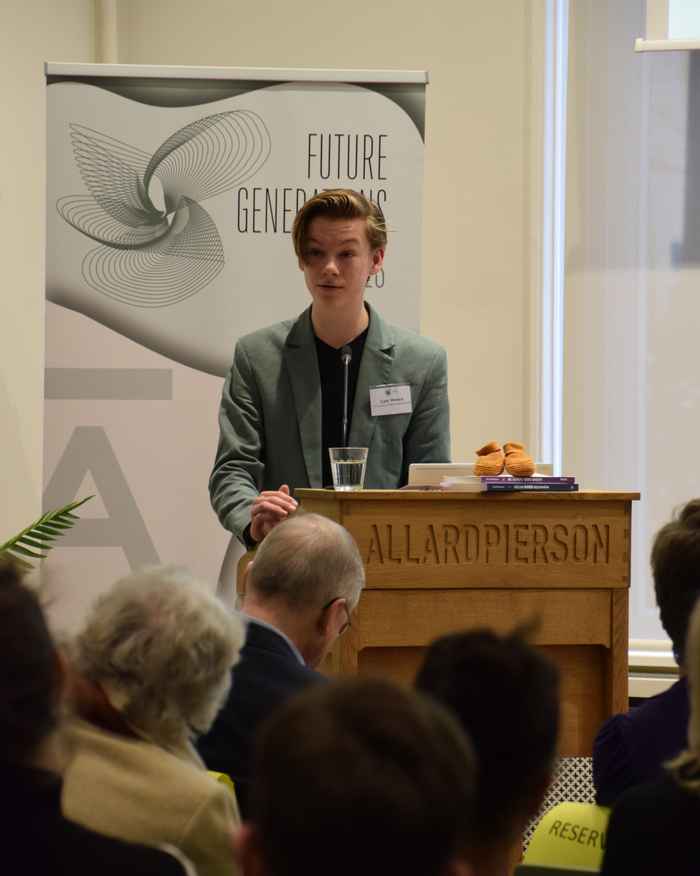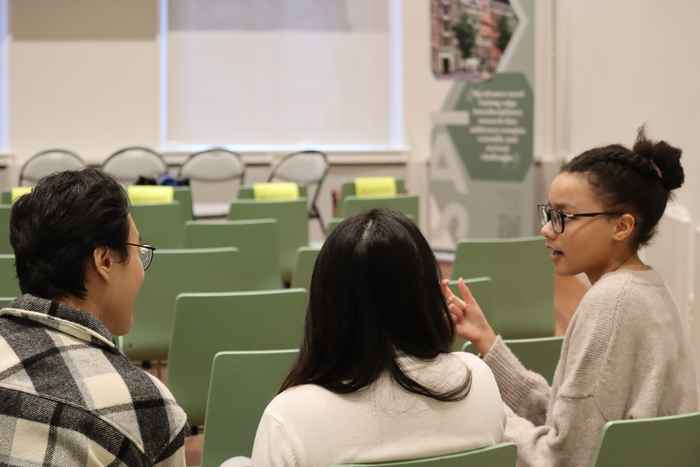How to take interests of Future Generations into account
18 March 2024
Translate science to society
The core objective of the initiative is to support societal change to promote intergenerational justice, sustainability and health for generations to come. Aligned with the four strategic themes of the University of Amsterdam (UvA), responsible digital transformations, fair and resilient societies, sustainability, and healthy futures, the initiative aims to inspire scientists (from every generation), policy makers and societal organization to translate the science within these themes to society. By galvanizing stakeholders across generations, it serves as a catalyst for change, fostering a collective responsibility toward current and future generations.

Recap of the event
The recent event, titled "How to Take the Interests of Future Generations into Account," delved into practical approaches for integrating future perspectives into research and policymaking. Opening with an inspirational speech by Lars Westra, Vice-President of the Children's Rights Collective, attendees were reminded of the significance of children's rights and voices in shaping the future. Professor Ernst Hirsch Ballin described from a human rights perspective how intergenerational human rights and sustainable democracies relate and give human beings the right to ‘life projects’. Dr. Laura Burgers shared inspiring examples of how court can enforce rights of future generations, drawing on her earlier research on climate litigation from Europe as well as giving a sneak preview into global south developments. Eva Rovers spoke passionately about citizen’s assemblies and their invaluable contribution to democracies. She described Future Design as a way to use citizen’s assemblies to also include the voices of future generations, and shared examples from Japan where these assemblies are increasingly being used in developing long term policies while taking the interests of future generations into account.

During the table discussions at the end of the session, concrete initiatives were discussed that could help us take the interests of future generations into account in our actions and policy decisions. These will be elaborated on in the third event, which is scheduled for 21 May. In all presentations, it became clear that imagination is crucial in making significant steps towards future inclusive research and policy making. Therefore, the topic of ‘imagination’ will be central in the third Future Generations event on May 21st.
Join the conversation
We are standing on the shoulders of the generations before us and we are laying the foundations for the world in which future generations will live. How were you formed by your past and what can you contribute to the future? Please join our community and our conversation at Future Generations.